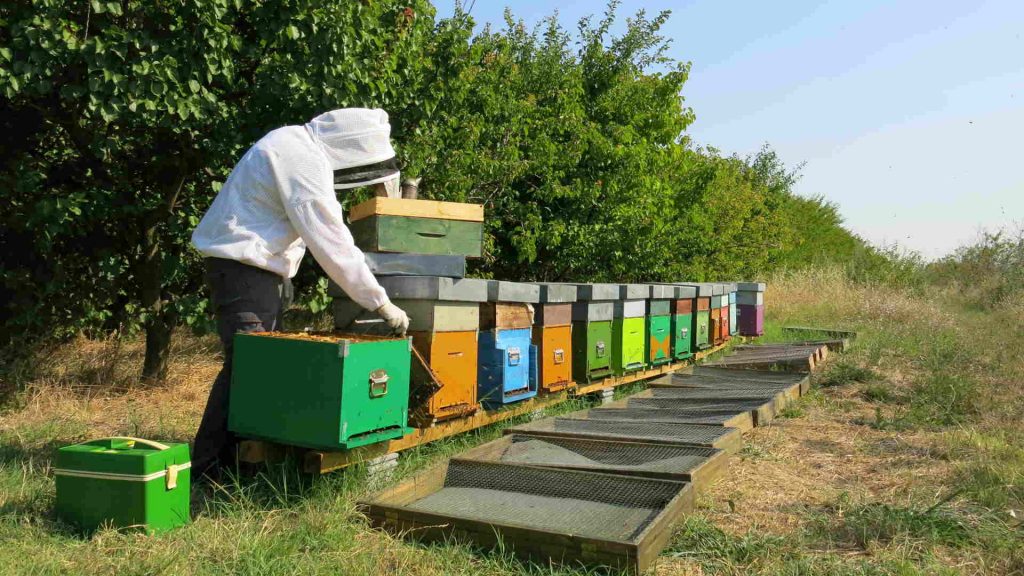BeeSafe performs bee field studies for the veterinary sector, especially clinical and dose confirmation studies in the registration process of Veterinary Medicinal Products (VMP) for bees. In addition, feeding studies for supplements for honey bee nutrition are possible. In the agricultural sector, BeeSafe monitors higher tier bee studies for agrochemicals.
Clinical and dose confirmation studies
According to the guideline for VMPs controlling Varroa destructor, studies to prove the efficacy and safety for bee colonies are necessary for the registration of varroa treatments. These clinical studies are the core of the registration process. BeeSafe performs these studies in collaboration with experienced technical personnel to ensure the high quality of the studies.
Though following the guideline, each study needs a specific planning according to the properties of the VMP. If you already did a roadmap session with BeeSafe, this will already be clear. Otherwise, we begin with a planning session for clarifying all the details on the timing of the treatment, the posology, and other parameters. This is necessary to make sure that the study represents a practical case under field conditions. And, by this, save you time and money by getting realistic results.
Both clinical and dose confirmation studies need the final formulation of the product. If you’re still in the development phase of the product, field studies covering the development of the formulation, the posology, etc. are also possible. Contact me to know more!
Feeding studies
Feed supplements for honey bees are usually nutritional additives, like protein supplements or vitamins. They have to show their beneficial effect on colony health and development. Honey bees are food producing animals. Therefore, it’s also necessary to avoid residues in the honey or any falsifications of the honey or other hive products that may be used food production.
BeeSafe performs the necessary feeding studies according to the current guidelines.
Monitoring bee field studies for the risk assessment of agrochemicals
Both for the risk assessment of pesticides and biocides there are new guidance documents published by the relevant authorities EFSA and ECHA. The guidance in this area is relatively new and still waiting for approval by the EU commission. However, these documents will rule the risk assessment on bees in the future, with increased importance of bee field studies.
BeeSafe offers monitoring of higher tier studies – as a link between the CROs and sponsor, filled with expertise on bee biology. This ensures not only studies according to the guidelines, but also providing high quality data and report.
Terms and conditions
Each study will receive a tailored quote to meet the requirements of the product. Consultancy is NOT included in field studies, this will be quoted and invoiced separately. Obviously, BeeSafe will consult you on the right study type, number of colonies or sites and other things related to the study. Other than that will be considered a different project.
BeeSafe can plan out studies only based on the information provided by the sponsor. If any relevant information is missing, no responbility can be taken by BeeSafe.
The product to be tested must be provided by the sponsor, following the indications by BeeSafe.

